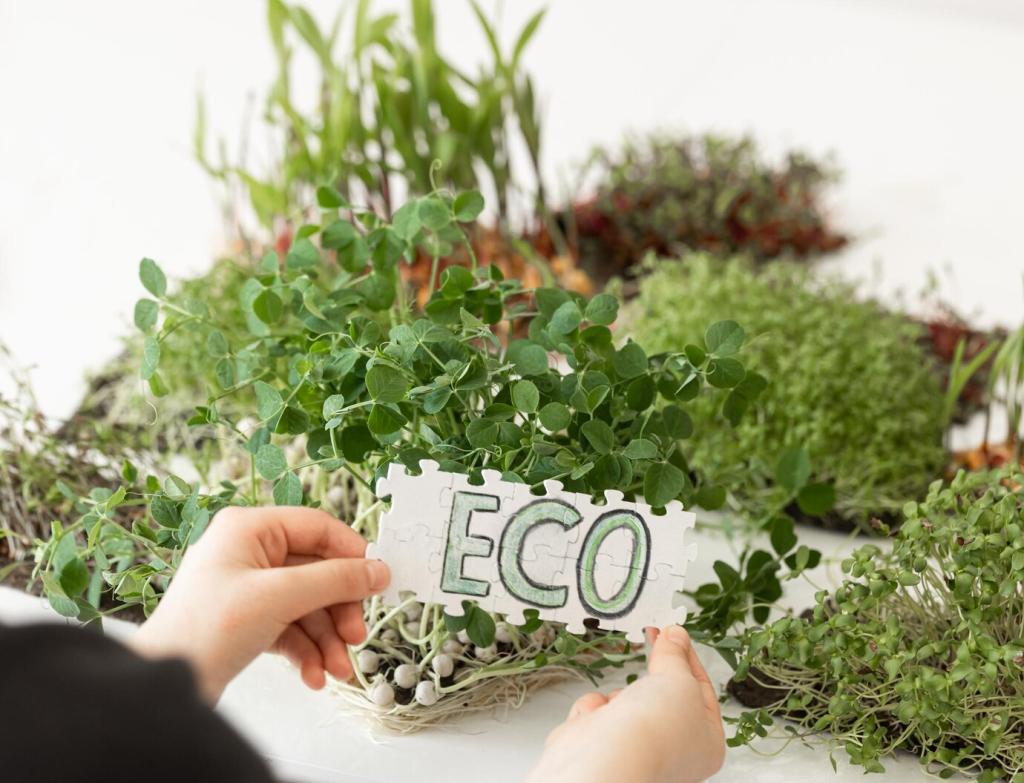Eco-Friendly Fabrics and Materials
Eco-friendly fabrics and materials are revolutionizing the textile and fashion industries by prioritizing sustainability, resource conservation, and ethical production. These materials are designed to minimize environmental impact throughout their lifecycle, from sourcing and manufacturing to disposal or recycling. Embracing eco-friendly options plays a critical role in addressing pollution, reducing waste, and supporting a global shift towards responsible consumption. As environmental awareness grows, individuals and businesses are increasingly seeking alternatives that combine quality, functionality, and a reduced ecological footprint.

The Importance of Sustainable Materials
Sustainable fabrics are developed with the intention of minimizing harm to the planet. This involves reduced water consumption, lower greenhouse gas emissions, and the avoidance of toxic chemicals during cultivation and processing. By choosing such materials, manufacturers and consumers can significantly lessen the burden on ecosystems, promote soil health, and protect biodiversity. Ultimately, materials engineered for sustainability offer long-term environmental benefits that far outweigh those of conventional, resource-intensive alternatives.

Popular Eco-Friendly Fabrics
Organic cotton is cultivated using methods and materials that have a low impact on the environment. Unlike conventional cotton, it is grown without the use of synthetic pesticides, fertilizers, or genetically modified organisms. Organic farming practices promote soil fertility and preserve biodiversity, contributing to healthier agricultural systems. Clothes and textiles made from organic cotton are gentle on the skin and often more breathable, making them a preferred choice for those seeking comfort along with environmental responsibility. Furthermore, by supporting organic cotton, consumers help reduce the use of harmful chemicals and encourage safer working conditions for farmers.

Recycled Polyester
Recycled polyester is made by repurposing post-consumer plastic waste, such as bottles, into high-quality yarn. This process prevents plastic from reaching landfills and reduces the need for new petroleum-based materials, significantly lowering carbon emissions. Recycled polyester retains the strength, durability, and versatility of virgin polyester, making it especially popular in activewear and fashion. By choosing products made with recycled polyester, brands and consumers can actively support waste reduction and the conservation of natural resources, turning trash into valuable textiles.
Piñatex (Pineapple Leather)
Piñatex is an innovative natural leather alternative made from the fibers of pineapple leaves, a byproduct of the fruit’s harvest. By utilizing agricultural waste, Piñatex avoids additional land and water use while providing new income streams for farming communities. The resulting material is versatile, lightweight, and durable, suitable for use in shoes, accessories, and upholstery. As awareness rises about the environmental costs associated with traditional leather, plant-based options like Piñatex are gaining traction for their lower footprint and cruelty-free credentials, pointing to a significant shift in material culture.
TENCEL™ Lyocell
TENCEL™ Lyocell is a branded cellulose fiber sourced from sustainably managed forests, often eucalyptus, through an environmentally responsible closed-loop process. This innovative manufacturing approach recycles nearly all solvents and water used, dramatically reducing waste. TENCEL™ Lyocell fibers are celebrated for their silky softness, moisture-wicking properties, and exceptional breathability, making them ideal for clothing, bed linens, and more. Its production emphasizes traceability and environmental stewardship, offering a renewable alternative to conventional fibers without sacrificing comfort or quality.
